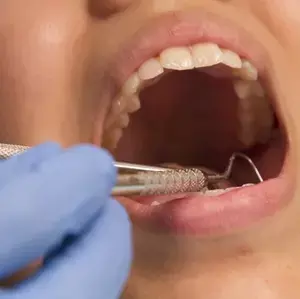- Home
- Medical news & Guidelines
- Anesthesiology
- Cardiology and CTVS
- Critical Care
- Dentistry
- Dermatology
- Diabetes and Endocrinology
- ENT
- Gastroenterology
- Medicine
- Nephrology
- Neurology
- Obstretics-Gynaecology
- Oncology
- Ophthalmology
- Orthopaedics
- Pediatrics-Neonatology
- Psychiatry
- Pulmonology
- Radiology
- Surgery
- Urology
- Laboratory Medicine
- Diet
- Nursing
- Paramedical
- Physiotherapy
- Health news
- Fact Check
- Bone Health Fact Check
- Brain Health Fact Check
- Cancer Related Fact Check
- Child Care Fact Check
- Dental and oral health fact check
- Diabetes and metabolic health fact check
- Diet and Nutrition Fact Check
- Eye and ENT Care Fact Check
- Fitness fact check
- Gut health fact check
- Heart health fact check
- Kidney health fact check
- Medical education fact check
- Men's health fact check
- Respiratory fact check
- Skin and hair care fact check
- Vaccine and Immunization fact check
- Women's health fact check
- AYUSH
- State News
- Andaman and Nicobar Islands
- Andhra Pradesh
- Arunachal Pradesh
- Assam
- Bihar
- Chandigarh
- Chattisgarh
- Dadra and Nagar Haveli
- Daman and Diu
- Delhi
- Goa
- Gujarat
- Haryana
- Himachal Pradesh
- Jammu & Kashmir
- Jharkhand
- Karnataka
- Kerala
- Ladakh
- Lakshadweep
- Madhya Pradesh
- Maharashtra
- Manipur
- Meghalaya
- Mizoram
- Nagaland
- Odisha
- Puducherry
- Punjab
- Rajasthan
- Sikkim
- Tamil Nadu
- Telangana
- Tripura
- Uttar Pradesh
- Uttrakhand
- West Bengal
- Medical Education
- Industry
AI can detect patients who respond better to peri-implantitis treatment: Study

This proof-of-concept study offers a personalized approach to identify the types of patients that better respond to regenerative therapies for peri-implantitis.
Peri-implantitis, a condition where tissue and bone around dental implants become infected, besets roughly one-quarter of dental implant patients, and currently, there's no reliable way to assess how patients will respond to treatment of this condition.
To that end, a team led by the University of Michigan School of Dentistry developed a machine learning algorithm, a form of artificial intelligence, to assess an individual patient's risk of regenerative outcomes after surgical treatments of peri-implantitis.
The algorithm is called FARDEEP, which stands for Fast and Robust Deconvolution of Expression Profiles. In the study, researchers used FARDEEP to analyze tissue samples from a group of patients with peri-implantitis who were receiving reconstructive therapy. They quantified the abundance of harmful bacteria and certain infection-fighting immune cells in each sample.
Patients who were at low risk for periodontal disease showed more immune cells that were highly adept at controlling bacterial infections, said Yu Leo Lei, senior author and assistant professor of dentistry.
The team was surprised that the types of cells associated with better outcomes for implant patients challenge conventional thinking, said Lei, who also has an appointment at the Rogel Cancer Center.
"Much emphasis has been placed on the immune cell types that are more adept at wound healing and tissue repair," he said. "However, here we show that immune cell types that are central to microbial control are strongly correlated with superior clinical outcomes.
"Surgical management can reduce bacterial burdens across all patients, however, only the patients with more immune cell subtypes for bacterial control can suppress the recolonization of pathogenic bacteria and show better regenerative outcomes."
Dental implant-supported crowns offer esthetic, functional and natural-feeling tooth replacements, and the market is estimated to reach $6.8 billion by 2024. Dental implants have transformed reconstructive options, but the emerging endemic of peri-implantitis has severely compromised the long-term success of implant dentistry, the researchers said.
Peri-implantitis can lead to progressive bone loss, bleeding, pus and eventual loss of the dental implants and associated crowns or dentures that they support. Replacement of a new dental implant at the previously damaged site is often challenging because of poor bone quality and delayed healing. Preventive implant maintenance and long-term management of peri-implantitis becomes part of the routine practice after implant reconstruction.
"Regenerative therapy for peri-implantitis is expensive and treatment outcomes are unpredictable," said first author Jeff Wang, U-M clinical assistant professor and principal investigator for the regenerative treatment of peri-implantitis clinical trial. "It would be very helpful if we could use the information to determine the best course of treatment, or maybe we'd decide that the more sensible option would be to replace an old implant with a new one, despite the challenge to rebuild the bone."
In the future, it may be possible to predict the risk of peri-implantitis before a dental implant is placed, he said. More human clinical trials are required before FARDEEP is ready to be used widely by clinicians.
"However, this proof-of-concept study offers a personalized approach to identify the types of patients that better respond to regenerative therapies," said co-author William Giannobile, a professor of oral medicine, infection and immunity, and dean of the Harvard School of Dental Medicine. Previously, Giannobile was at the U-M School of Dentistry.
Reference:
The study titled, "Machine learning-assisted immune profiling stratifies peri-implantitis patients with unique microbial colonization and clinical outcomes," is published in the journal Theranostics.
DOI: https://www.thno.org/v11p6703.htm
Dr Kamal Kant Kohli-MBBS, DTCD- a chest specialist with more than 30 years of practice and a flair for writing clinical articles, Dr Kamal Kant Kohli joined Medical Dialogues as a Chief Editor of Medical News. Besides writing articles, as an editor, he proofreads and verifies all the medical content published on Medical Dialogues including those coming from journals, studies,medical conferences,guidelines etc. Email: drkohli@medicaldialogues.in. Contact no. 011-43720751


